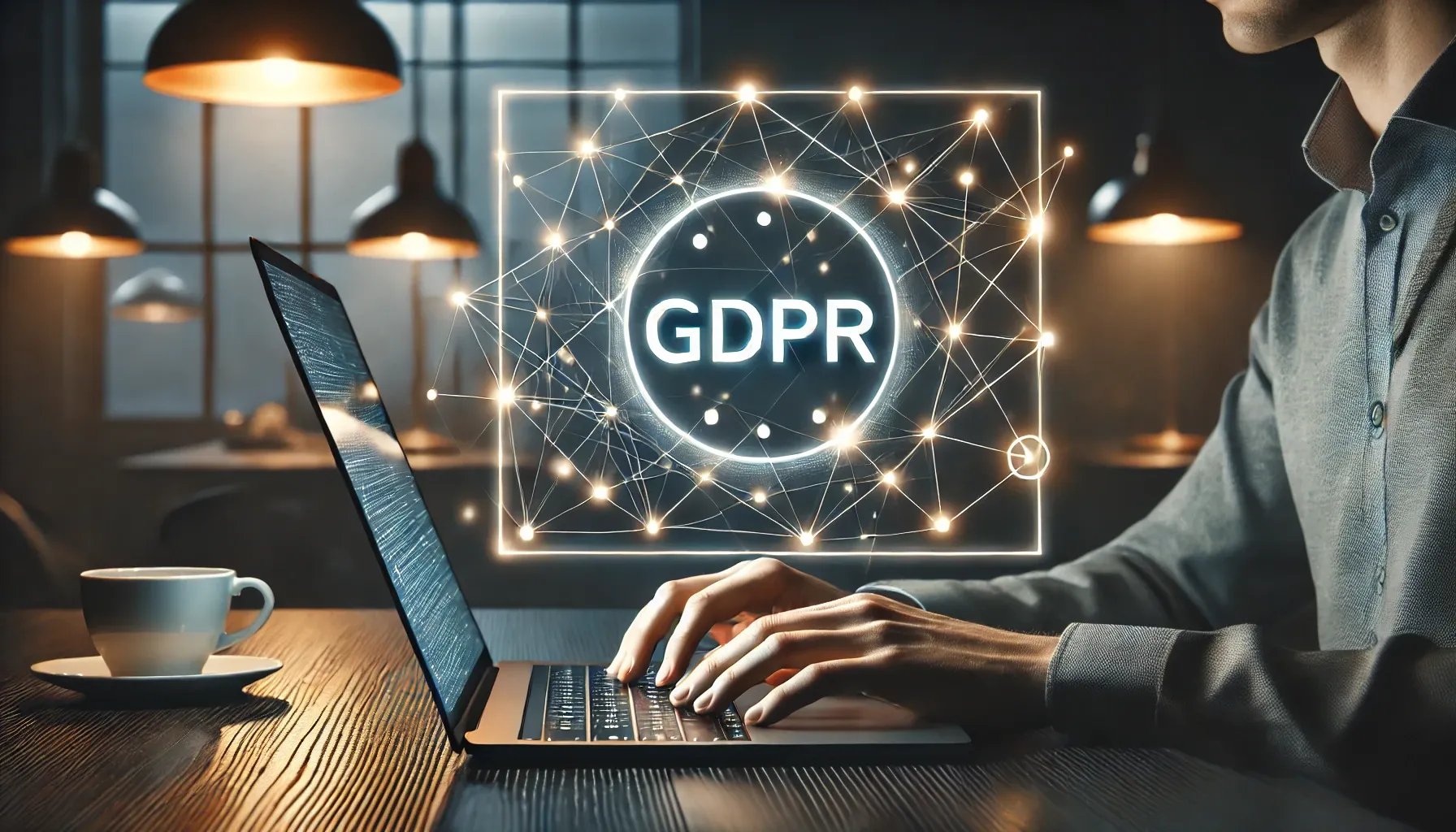Introduction
In today's digital age, data privacy has become a critical concern for organizations worldwide, and non-profits are no exception. The General Data Protection Regulation (GDPR) has significantly impacted how organizations handle personal data, including financial information. For non-profits operating in or receiving donations from the European Union (EU), understanding and complying with GDPR is not just a legal requirement but also a crucial step in maintaining donor trust and protecting sensitive information. This blog post aims to provide practical advice on GDPR compliance for payment processing and data privacy, specifically tailored to the unique challenges faced by non-profit organizations.
We'll explore the basics of GDPR, its implications for payment processing, and offer actionable steps to ensure compliance while maintaining efficient operations. Non-profits face specific challenges when it comes to GDPR compliance. These include limited resources, reliance on volunteer staff, and the need to balance data protection with donor engagement. Additionally, the often international nature of non-profit work can complicate compliance efforts. By addressing these challenges head-on, non-profits can not only meet legal requirements but also enhance their reputation and donor relationships.
Understanding GDPR Basics
The General Data Protection Regulation (GDPR) is a comprehensive data protection law that came into effect in May 2018. It applies to all organizations processing personal data of EU residents, regardless of where the organization is based. This means that non-profits outside the EU may still need to comply if they handle data of EU donors or beneficiaries.
Key principles of GDPR include:
- Lawfulness, fairness, and transparency: Personal data must be processed legally, fairly, and in a transparent manner.
- Purpose limitation: Data should be collected for specified, explicit, and legitimate purposes.
- Data minimization: Only necessary data should be collected and processed.
- Accuracy: Personal data must be kept accurate and up to date.
- Storage limitation: Data should be kept in a form that permits identification of data subjects for no longer than necessary.
- Integrity and confidentiality: Appropriate security measures must be in place to protect personal data.
The accountability principle is particularly important, requiring organizations to demonstrate compliance with these principles.
GDPR and Payment Processing
Payment processing is a critical function for non-profits that intersects directly with GDPR compliance. This section explores the specific GDPR requirements for handling donor financial information, focusing on lawful basis for processing and the protection of sensitive payment data. We'll examine how non-profits can align their payment practices with GDPR principles, balancing compliance with operational efficiency. When it comes to payment processing, GDPR has specific requirements that non-profits must adhere to.
The lawful basis for processing payments typically falls under one of three categories:
- Consent: Explicit permission from the donor to process their data.
- Contract: Processing is necessary for the performance of a contract (e.g., processing a donation).
- Legal obligation: Processing is required to comply with a legal obligation.
Under GDPR, payment data is considered sensitive personal data. This includes not only payment card information but also donor personal details such as name, address, and email. Non-profits must implement data protection by design and by default, ensuring that only necessary data is collected and processed.
Collecting and Processing Payment Data
Collecting and processing payment data is essential for non-profits, but it presents significant challenges under GDPR. This section outlines best practices for gathering financial information compliantly and securely. We'll cover transparency in data collection, consent mechanisms, and technical considerations for secure data handling, helping non-profits meet regulatory requirements while building donor trust.
Best practices for collecting payment information include:
- Obtaining explicit consent from donors before processing their data.
- Providing clear and transparent privacy notices explaining how data will be used.
- Using secure methods for processing payments, such as reputable payment processors that are GDPR compliant.
- Ensuring the secure storage and transmission of financial information through encryption and secure payment gateways.
Non-profits should carefully evaluate their payment collection processes to ensure they align with GDPR requirements. This may involve updating donation forms, revising privacy policies, and implementing new security measures.
Data Privacy and Security Measures
Protecting payment data is crucial for non-profits under GDPR. This section covers essential security measures and best practices for safeguarding sensitive information. Implementing robust security measures is crucial for protecting payment data. This includes:
- Encryption and pseudonymization of personal data.
- Regular security audits and vulnerability assessments to identify and address potential weaknesses.
- Access control measures to ensure only authorized personnel can access payment data.
- Data minimization practices, storing only necessary information for the minimum duration required.
Non-profits should also consider implementing a comprehensive information security management system (ISMS) to systematically manage and protect sensitive data.
Donor Data Privacy and Rights
GDPR empowers donors with specific rights regarding their personal data. This section outlines these rights and how non-profits can ensure compliance. GDPR grants several rights to individuals regarding their personal data. For non-profits, this means ensuring donors have:
- The right to be informed about how their data is used.
- The right to access their personal data.
- The right to rectification of inaccurate data.
- The right to erasure (also known as the "right to be forgotten").
- The right to restrict processing of their data.
- The right to data portability.
Non-profits must have processes in place to facilitate these rights and respond to donor requests promptly. This may involve creating dedicated channels for data-related inquiries and training staff to handle such requests efficiently.
Payment Processors and GDPR
Selecting GDPR-compliant payment processors is a critical step for non-profits. This choice impacts not only operational efficiency but also overall compliance posture. Understanding the roles of data controllers and processors is essential for establishing proper agreements and responsibilities. Choosing GDPR-compliant payment processors is crucial for non-profits. When evaluating processors, consider:
- Their data protection policies and practices.
- Compliance certifications and audits.
- Transparency about data handling and storage.
It's important to understand the distinction between data controllers (typically the non-profit) and data processors (such as payment gateways). Non-profits, as data controllers, are ultimately responsible for ensuring GDPR compliance, even when using third-party processors. Ensure proper agreements are in place with all processors, clearly outlining responsibilities and data handling practices.
Cross-border Data Transfers
For non-profits with international operations, managing cross-border data transfers is a key compliance challenge. GDPR imposes strict rules on transferring personal data outside the EU. Understanding and implementing appropriate transfer mechanisms is crucial for maintaining compliant global operations. For non-profits operating internationally, understanding the rules for transferring donor data outside the EU is crucial.
GDPR restricts such transfers unless certain conditions are met. These include:
- Adequacy decisions: Transfers to countries deemed to have adequate data protection laws.
- Standard Contractual Clauses (SCCs): Pre-approved contractual terms for data transfers.
- Binding Corporate Rules (BCRs): Internal rules for transfers within a corporate group.
With the invalidation of the EU-US Privacy Shield, non-profits must stay informed about current frameworks and alternatives for compliant data transfers.
Documentation and Record-keeping
Thorough documentation is a cornerstone of GDPR compliance. It serves as evidence of compliance efforts and helps organizations identify and address potential issues. Proper record-keeping is not just a legal requirement but a valuable tool for ongoing compliance management. GDPR emphasizes the importance of documentation and record-keeping. Non-profits should:
- Maintain detailed records of processing activities.
- Regularly conduct and document compliance checks and audits.
- Perform Data Protection Impact Assessments (DPIAs) for high-risk processing activities, including certain payment processing operations.
Proper documentation not only helps demonstrate compliance but also aids in identifying and addressing potential issues proactively.
Data Breach Notification
GDPR mandates swift action in the event of a data breach. Non-profits must be prepared to respond quickly and effectively to protect donor data and meet regulatory requirements. Having a well-defined breach response plan is essential for minimizing impact and maintaining trust. In the event of a data breach, GDPR requires prompt action. Non-profits should:
- Have a breach response plan in place.
- Be prepared to notify supervisory authorities within 72 hours of becoming aware of a breach.
- Communicate breaches to affected donors when there's a high risk to their rights and freedoms.
Regular testing of breach response procedures can help ensure readiness in case of an actual incident.
Practical Compliance Steps for Non-profits
Achieving GDPR compliance requires a comprehensive approach. Non-profits should implement a range of practical steps to ensure they meet regulatory requirements. These steps span from policy updates to staff training and technology implementations. To achieve and maintain GDPR compliance, non-profits should:
- Conduct a comprehensive GDPR compliance audit to identify gaps.
- Update privacy policies and practices to align with GDPR requirements.
- Implement robust data protection measures, including encryption and access controls.
- Train staff and volunteers on GDPR requirements and data handling best practices.
- Partner with GDPR-compliant payment processors and other service providers.
- Regularly review and update privacy policies and practices to ensure ongoing compliance.
Consider appointing a Data Protection Officer (DPO) or designating a team member to oversee data protection efforts, even if not strictly required by GDPR.
Reporting and Ongoing Compliance
GDPR compliance is not a one-time effort but an ongoing process. Non-profits must stay informed about regulatory changes and continuously improve their data protection practices. Regular audits and engagement with industry peers can help maintain a robust compliance posture. GDPR compliance is an ongoing process. Non-profits should:
- Stay informed about GDPR developments and guidance from regulatory authorities.
- Conduct regular compliance checks and audits.
- Continuously improve data protection practices based on new insights and experiences.
Engaging with peer organizations and industry associations can provide valuable insights and support in maintaining compliance.
Conclusion
GDPR compliance in payment processing presents unique challenges for non-profits, but it also offers an opportunity to enhance data protection practices and build stronger relationships with donors. By implementing robust privacy and security measures, non-profits can not only meet legal requirements but also demonstrate their commitment to protecting donor information.
Key takeaways for non-profits include:
- Understand GDPR basics and how they apply to payment processing.
- Implement strong data protection measures and secure payment processing methods.
- Respect and facilitate donor rights regarding their personal data.
- Choose GDPR-compliant partners and processors.
- Maintain thorough documentation and be prepared for potential data breaches.
- Regularly review and update compliance efforts.
While achieving and maintaining GDPR compliance may seem daunting, it's an essential investment in the future of your organization. By prioritizing data protection, non-profits can build trust, enhance their reputation, and create a solid foundation for sustainable growth. Remember, GDPR compliance is a journey, not a destination. Stay informed, be proactive, and don't hesitate to seek legal advice when needed. With careful planning and ongoing effort, your non-profit can navigate the complexities of GDPR and emerge stronger, more transparent, and better equipped to serve your mission in the digital age.

